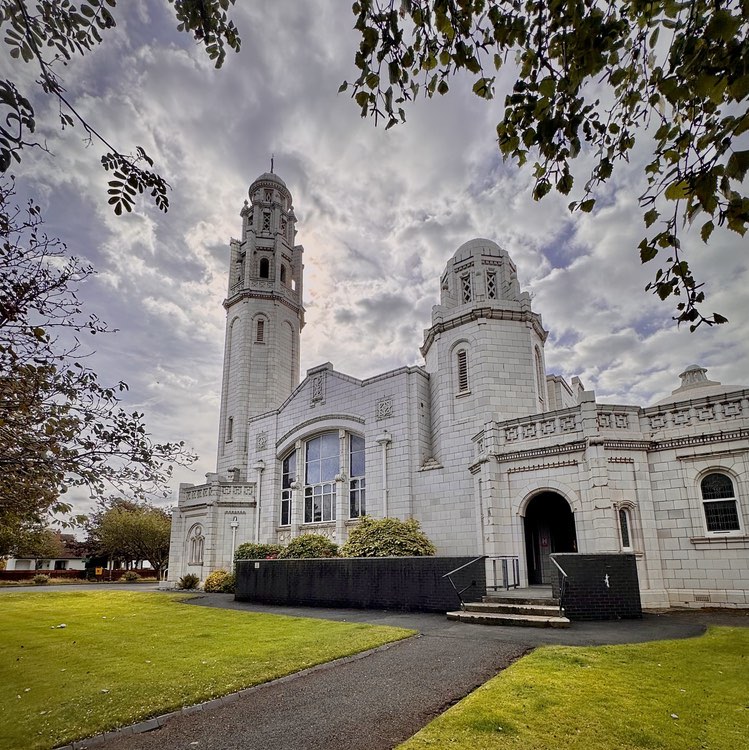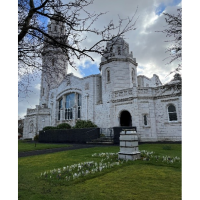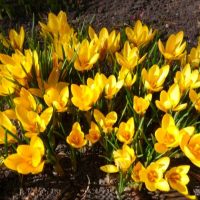Prayers of Approach
God of wisdom and peace, we come to you in worship and prayer, seeking your guidance and grace. We thank you for your Word, which teaches us how to live in harmony with you and with one another. We ask that you would make us wise and understanding, gentle and humble, pure and peaceable.
Loving, gracious God, who does not put us in order – greatest to least, best to worst, loved most to loved least, or any other order: be with us as we spend time with one another and with you. Help us to listen to you as you speak to us and challenge us, love us and encourage us.
Holy God, you are the creator of all things and the source of all wisdom. You are faithful and compassionate, merciful and forgiving, loving and good. We praise you for all you have done for us in Christ Jesus, our Lord and Saviour. Amen.
Hymn All my hope on God is founded (R&S 586)
Readings: James 3:13 – 4:3, 7-8a
Mark 9:30-37
Introduction
Once again Jesus disturbs his disciples by predicting his suffering and death. However, the disciples – whether through misunderstanding, or to avoid thinking about it – argue about which of them is the greatest? Jesus explains that to be the greatest is to serve others and talks about the first being last and the last, first. He brings a little child into the middle of the group, saying that welcoming a child is an example of welcoming him.
James outlines the qualities of a wise person, which come from above, while the qualities of the world (envy, selfish ambition) cause disorder and conflict in the Church and beyond. The solution is to submit to God. In both readings we are challenged to check the choices we make about how we live, that they may result in good fruit being seen in our lives. Jesus used a child to compare greatness and humility: even we, with wisdom, can sow a harvest of righteousness and draw near to God.
Hymn Seek ye first the kingdom of God (R&S 512)
Sermon
Who’s the greatest? For those of us of a certain age the answer is obvious of course – it’s Muhammed Ali! Ali is probably the most famous boxer ever, still recognised around the world today. In interviews or pre-fight publicity events, he would often speak about how much better he was than his opponent loudly proclaiming, ‘I am the greatest!’ At the height of his powers, Ali was called to serve the US army in Vietnam. He refused to be drafted, was tried, imprisoned and lost his world title. Was he still the greatest?
When Jesus asked the disciples what they had been talking about on the road they seemed to be embarrassed by the question and what they had been doing. Was it the subject matter of their discussion that embarrassed them, or was it because they had ignored or were avoiding Jesus’ statement about what was going to happen to him? Maybe it was a bit of both. I wonder though what criteria they were using when they were assessing greatness. Last month I sent my brother a birthday card that said, “siblings often argue but we don’t because we both know ‘I’m the best!’”
Did the disciples mean best? If so, best at what? Or perhaps they meant ‘most trusted’, or ‘been with Jesus the longest’, or ‘most important’ (whatever that might mean)? Although the language is about ‘the greatest’ – one person! – were they perhaps each trying to find or assert some kind of self-worth or value? There are lots of questions we could ask. But the picture is of the disciples competing with one another in very normal, very human ways that are just as familiar to us today.
There have been many surveys conducted and polls taken (one in 2002 by the BBC) to discover who is considered the ‘Greatest Briton.’ The top ten then were Winston Churchill, Isambard Kingdom Brunell, Princess Diana, Charles Dickens, William Shakespeare, Isaac Newton, Elizabeth I, John Lennon, Horatio Nelson and Oliver Cromwell. Does the list surprise you? What would the list look like if the poll were conducted again today? Who would you choose as the greatest and what criteria would you use?
Jesus’ response to the disciples is to take the conversation in a new direction. If they were confused by Jesus’ statements about his death and resurrection and were deliberately avoiding the issue then his next words were not going to lessen the confusion. He speaks of the first being last and the last first. Is Jesus telling his friends that, in the bigger picture, their argument about greatness was redundant? Jesus’ own way of life showed humility and servanthood. Those who declared themselves the greatest had clearly not understood the message he brought. To Jesus – in the kingdom of God – the greatest are those who regard themselves as the least, and act accordingly.
Jesus doesn’t actually criticise the disciples for their arguing but he shows them that they haven’t understood what greatness really is. In Jesus’ time children were the ‘least’ only really gaining value when they could contribute productively to society. Jesus turns that perspective on its head and gives us the opportunity to celebrate the value of children in their own right now (not just as the Church of the future) and to consider what they may teach us about choosing God and choosing wisdom.
Choosing wisdom will never be easy, how can we possibly be wise all the time? Sometimes there are no right decisions. For James the mark of God’s wisdom is the focus on others, which requires us to resist the selfishness of the world. Our focus is to be on what God wants, for all his children, to be our own best self for the good of others. Can we, by trusting in God and living contrary to the world’s expectation, be made great though humility?
Hymn Brother, sister, let me serve you (R&S 474)
Prayers of Intercession
Thank you, Lord, that we can always find our place in you. Thank you that we belong to you, and no one can take that away from us. We are secure in your loving arms. We need never be afraid to ask you anything. Thank you for the people who give us a cup of water, and much more, because we belong to you. Thank you for the times we can meet blessing with blessing.
Lord, we pray for all who have decisions to make today, or who face difficulties or challenges in their lives. We pray for those who are making decisions on behalf of others, and those whose decisions affect lives other than their own. We pray that they may have courage to do what is right, and the vision to see what is important, when there are so many other distractions.
We pray that they may all have the wisdom that comes from you – pure, peace-loving, gentle and merciful.
We pray for your Church, in all her diversity, that she may seek you above all, that you may grant her discernment and compassion. We pray that we may yield good fruit in our lives, not ‘lording’ it over others or squabbling about what we deserve but instead considering the needs of others first, following your example, and serving as you served.
We pray that we may all have the wisdom that comes from you – pure, peace-loving, gentle and merciful.
Let us receive as we have been received, forgive as we have been forgiven, and love as we have been loved. For Jesus Christ’s sake. Amen.
Hymn O Lord all the world belongs to you (R&S 90)
Blessing
Lord, Jesus, may we go out into the world to shine with your love, listen with your ears and speak words of kindness and hope to everyone we meet – in your name. Amen.
Prayers and other material (adapted) © Roots for Churches Ltd. Used by permission.








